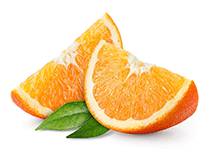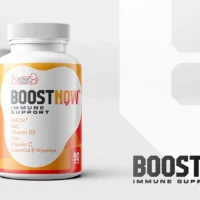Note do Readers:
As you embark on this informative journey through the best superfoods for immune system support, we’d like to highlight that BoostNow’s formula encompasses these key ingredients and more. Our comprehensive blend is crafted to harness the synergistic effects of each superfood, offering a robust defense for your health and well-being. Keep BoostNow in mind as you read on; it’s your all-in-one source for immune-boosting essentials.
Superfoods for Immune System: Decoding the ‘Super’ in Nature’s Top Defenders
The term “superfoods” has become a buzzword in the health and wellness industry, but is there substance behind the hype? Can we truly classify certain foods as “super”? The moniker ‘superfood’ is not a scientific term but rather a popular label that captures the public’s imagination. It’s used to describe foods that are thought to be nutritionally dense and thus good for one’s health. The reason some foods have been elevated to “super” status is due to their high concentrations of critical nutrients—such as antioxidants, vitamins, and minerals—that are essential for optimal health and are believed to bolster our immune system.
Superfoods for the immune system have garnered this title because they are powerhouses of nutrition that can help to fortify our body’s defenses. Scientific studies lend credibility to this term by confirming the health benefits of these foods. For instance, the antioxidants found in berries are linked to a reduction in inflammation and an increase in immune response, according to research published in the “Journal of Agricultural and Food Chemistry.” Similarly, the omega-3 fatty acids prevalent in certain fish have been associated with enhanced immune function, as per the findings in the “Journal of Leukocyte Biology.”
While the term “superfoods” might be a modern invention, the idea that certain foods have special health-promoting properties is grounded in science. Superfoods for the immune system are particularly important because they contain specific nutrients that support the immune system’s ability to fight off illness and disease. These foods become a key part of a holistic approach to health that includes other lifestyle choices such as regular exercise, adequate sleep, and stress management.
In this article, we’ll explore the scientific basis behind the superfoods for the immune system and how incorporating these foods into your diet can contribute to your overall health. We’ll also examine why these foods have earned the “super” label and how they can be part of your strategy for a strong and responsive immune system.
Unlocking the Potential of Vitamin C in Superfoods for Immune System Support
Vitamin C, also known as ascorbic acid, is often hailed as a superfood, and for good reason. It’s a potent antioxidant that plays a critical role in maintaining various bodily functions, including the health of skin, bones, and connective tissue. It also aids in the absorption of iron from plant-based foods and supports the immune system’s various cellular functions.
Why Vitamin C is Considered a Superfood:
Vitamin C earns its superfood title by being a potent antioxidant that defends our cells from oxidative stress and aids in the battle against environmental and internal stressors. It’s crucial for collagen synthesis, which is vital for skin health and wound healing, and plays a pivotal role in immune system function, potentially shortening the duration of common colds. This essential nutrient, found in a colorful array of fruits and vegetables, is a cornerstone of robust health.
Demystifying Myths About Vitamin C:
One common myth about Vitamin C is that taking large doses can prevent the common cold. While research has shown that Vitamin C does not necessarily prevent colds in the general population, it may reduce the duration and severity of a cold. A meta-analysis of studies in the “Cochrane Database of Systematic Reviews” found that regular Vitamin C supplementation had a modest effect in reducing the duration of common cold symptoms.
Vitamin C’s Role During a Cold:
During a cold, the body’s need for Vitamin C can increase as it’s used up more rapidly to combat the infection. The antioxidant properties of Vitamin C can help reduce inflammation and potentially lower the risk of complications. It’s important to note, however, that while Vitamin C is essential for a healthy immune system, it’s not a cure-all. It works best as part of a balanced diet and healthy lifestyle.
Rethinking Vitamin C: Insights from Paul Saladino on the Joe Rogan Podcast
In a fascinating episode of the Joe Rogan podcast, Dr. Paul Saladino, a staunch advocate of the carnivore diet, shared some thought-provoking views on Vitamin C. Contrary to popular belief, Saladino suggested that our bodies might require less Vitamin C than what’s conventionally recommended, especially when following a diet low in carbohydrates. He explained that without the presence of carbohydrates, the competition between glucose and Vitamin C — both of which have similar structures — is reduced, potentially lowering our Vitamin C needs.
<iframe width=”560″ height=”315″ src=”https://www.youtube.com/watch?v=k8L-SEs7Ss8&t=270s&ab_channel=JREClips” title=”YouTube video player” frameborder=”0″ allow=”accelerometer; autoplay; clipboard-write; encrypted-media; gyroscope; picture-in-picture; web-share” allowfullscreen></iframe>
Saladino also shed light on an often-overlooked fact: certain animal organs, like the liver, are surprisingly rich in Vitamin C. This challenges the widespread assumption that Vitamin C is only abundant in fruits and vegetables. His insights encourage us to look at our diet through an evolutionary lens, considering that ancestral eating habits might hold the key to understanding our modern nutritional needs.
Zinc: The Unsung Hero in Superfoods for the Immune System
Zinc might just be one of the most mind-blowing elements on the periodic table when it comes to our health. It’s a mineral that’s crucial for immune function, DNA synthesis, and cell division. Zinc is involved in the activity of over 300 enzymes that aid metabolism, digestion, nerve function, and many other processes.
The Power of Zinc in Immune Response:
Zinc’s impact on the immune system is profound and multifaceted, and this has been brought into sharp focus by the COVID-19 pandemic. Research has suggested that zinc may play a vital role in the body’s ability to combat COVID-19 and other viral infections. One of the mechanisms by which zinc exerts its antiviral effects involves the stabilization of cell membranes and the inhibition of viral replication.
A study published in “Frontiers in Immunology” discussed the potential of zinc to inhibit the replication of viruses within human cells. Zinc ions have been observed to interfere with the replication process of certain viruses by affecting the activity of viral proteases or polymerases, which are enzymes that viruses use to replicate within human cells.
Furthermore, there has been discussion in the scientific community about the possibility that zinc could affect the virus’s ability to enter cells. Zinc may influence the interaction between the virus and the cell’s surface, potentially making it more difficult for the virus to penetrate the cell membrane. This is particularly relevant to viruses like SARS-CoV-2, which rely on their spike proteins to attach to and enter human cells.
It’s important to note that while these findings are promising, they are part of ongoing research and should be interpreted with caution. The exact mechanisms by which zinc could prevent the spread of viruses at the cellular level are still being studied, and more research is needed to fully understand its therapeutic potential against COVID-19.
Zinc’s Synergistic Effects with Other Nutrients:
Zinc doesn’t work alone; it has a synergistic relationship with other nutrients. For instance, when taken with certain antioxidants like Vitamin C, zinc can have an even stronger effect on the immune system. This synergy enhances the body’s ability to ward off infections and heal wounds.
The Consequences of Zinc Deficiency:
The effects of not getting enough zinc are profound. A deficiency in zinc can lead to a weakened immune response, slower wound healing, and increased susceptibility to infections. The “Journal of Nutrition” highlights that even mild zinc deficiency can disrupt immune function, underscoring the importance of maintaining adequate zinc levels.
Zinc in Superfoods:
While oysters are famously the richest source of zinc, it’s also found in beef, pumpkin seeds, lentils, and various nuts. These foods not only contribute to zinc intake but also bring a host of other beneficial nutrients to the table, making them true superfoods for the immune system.
EpiCor: The Accidental Discovery Boosting Immune Systems
The story of EpiCor is as intriguing as its health benefits. This powerhouse ingredient didn’t start out as a health supplement but was discovered by chance—a serendipitous byproduct of the yeast fermentation process used in animal feed production. Workers at the factory where EpiCor was produced were found to have significantly better immune health compared to others, sparking interest in the substance’s potential benefits for humans.
The Factory Phenomenon:
It was observed that employees at the Diamond V factory, which produced animal feed, had unusually low rates of sick leave compared to other groups. This observation led to further investigation and the eventual identification of EpiCor as a unique product of the yeast fermentation process. The workers were exposed to the air around the fermentation vats, which was rich with the compounds that would later be known as EpiCor.
Scientific Studies on EpiCor:
Research has since uncovered that EpiCor acts as an immunomodulator, which means it can help balance the immune system’s response. A study published in the “Journal of Alternative and Complementary Medicine” found that EpiCor has a beneficial effect on the mucosal immune system, which is the body’s first line of defense against pathogens. Another study in the “Journal of Medicinal Food” showed that EpiCor could increase secretory IgA, an antibody that plays a critical role in immune function within the gut.
The Difference EpiCor Makes:
The most compelling aspect of EpiCor is its ability to support the body’s immune defense across various fronts. Clinical trials have indicated that EpiCor not only supports a healthy immune system but may also reduce the incidence of cold and flu symptoms, particularly in those with seasonal allergies.
Interestingly, EpiCor’s benefits may extend beyond immune health. Preliminary studies suggest that it could also have a positive impact on gut health due to its high content of beta-glucans and other beneficial compounds, which are known to support gut microbiota.
Elderberry: The Immune-Boosting Berry with Numbers to Prove It
Elderberry, the dark purple berry from the European elder tree, has been making waves in the world of natural health for its immune-boosting properties. But it’s not just folklore and hearsay—science backs up the claims about this little berry’s big benefits.
Clinical Evidence of Elderberry’s Impact:
A systematic review and meta-analysis of randomized controlled clinical trials, which is considered a high standard in evidence-based medicine, was published in the “Journal of Functional Foods.” It found that elderberry supplementation can significantly reduce the symptoms and duration of a cold. Participants who took elderberry extract experienced, on average, a reduction of cold duration by 2 days compared to those who did not.

The Numbers Behind the Berry
In one of the studies included in the meta-analysis, cold sufferers who took elderberry extract saw their symptoms relieved on average four days earlier than those who took a placebo. Furthermore, a study published in the “Journal of International Medical Research” reported that air travelers who used elderberry had a 28% lower risk of developing a cold, and for those who did catch a cold, their symptoms were less severe and improved faster.
Elderberry’s Antioxidant Power
Elderberries are rich in anthocyanins, which give them their characteristic deep color and are powerful antioxidants. These compounds help to fight oxidative stress in the body, which is a key factor in immune system health. The berries also contain vitamin C and dietary fiber, adding to their nutritional profile.
A Synergistic Approach to Immunity
While elderberry is potent on its own, it’s often combined with other immune-supporting ingredients like zinc and vitamin C, creating a synergistic effect that can further enhance its benefits. This combination approach is a hallmark of many high-quality immune support supplements.
Ginger: The Spicy Root with Surprising Health Benefits
Ginger is more than just a kitchen staple; it’s a botanical phenomenon with a kick that goes beyond its spicy flavor. This root’s health benefits are as robust as its taste, and science has the numbers to prove it.
Ginger’s Gastrointestinal Genius
One of ginger’s most well-documented powers is its ability to soothe an upset stomach. A meta-analysis of clinical trials, published in the “European Journal of Gastroenterology & Hepatology,” found that ginger reduced nausea and vomiting by 38% in postoperative patients and by up to 75% in pregnant women experiencing morning sickness.
The Anti-Inflammatory All-Star
Ginger contains a compound called gingerol, which has been shown to have potent anti-inflammatory and antioxidant effects. Research in the “Journal of Medicinal Food” suggests that gingerol can reduce exercise-induced muscle pain by 25%. This isn’t just good news for athletes; it’s a revelation for anyone looking to support their body’s recovery processes.
A Cold Fighter with a Warm Bite
When cold season hits, ginger is a go-to remedy for many. It’s not just an old wives’ tale; a study in the “Journal of Ethnopharmacology” found that fresh ginger effectively warms the body, which can help sweat out a cold. This thermogenic quality of ginger makes it a natural ally in combating the chills associated with the common cold.
Ginger and Cholesterol: A Spicy Surprise
Perhaps one of the most unexpected facts about ginger is its impact on cholesterol levels. A randomized, double-blind, placebo-controlled study published in “Phytomedicine” reported that participants who consumed 3 grams of ginger powder daily experienced a significant reduction in most cholesterol markers, with low-density lipoprotein (LDL) levels dropping by 10% over 45 days.
Ginger’s health benefits are backed by solid numbers and are anything but ordinary. Whether it’s aiding digestion, reducing pain and inflammation, fighting colds, or improving heart health, ginger has earned its place not just in the spice rack but also in the pantheon of superfoods for the immune system.








